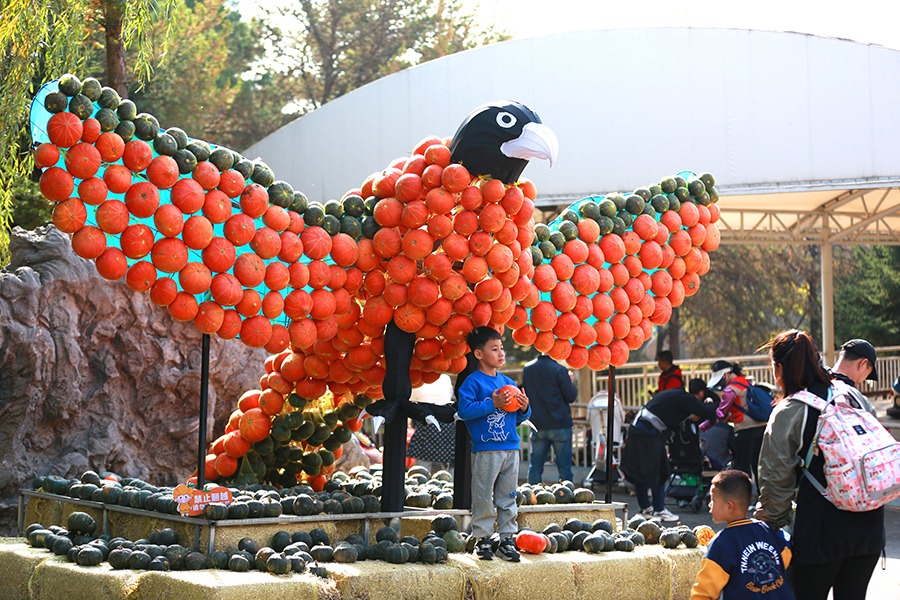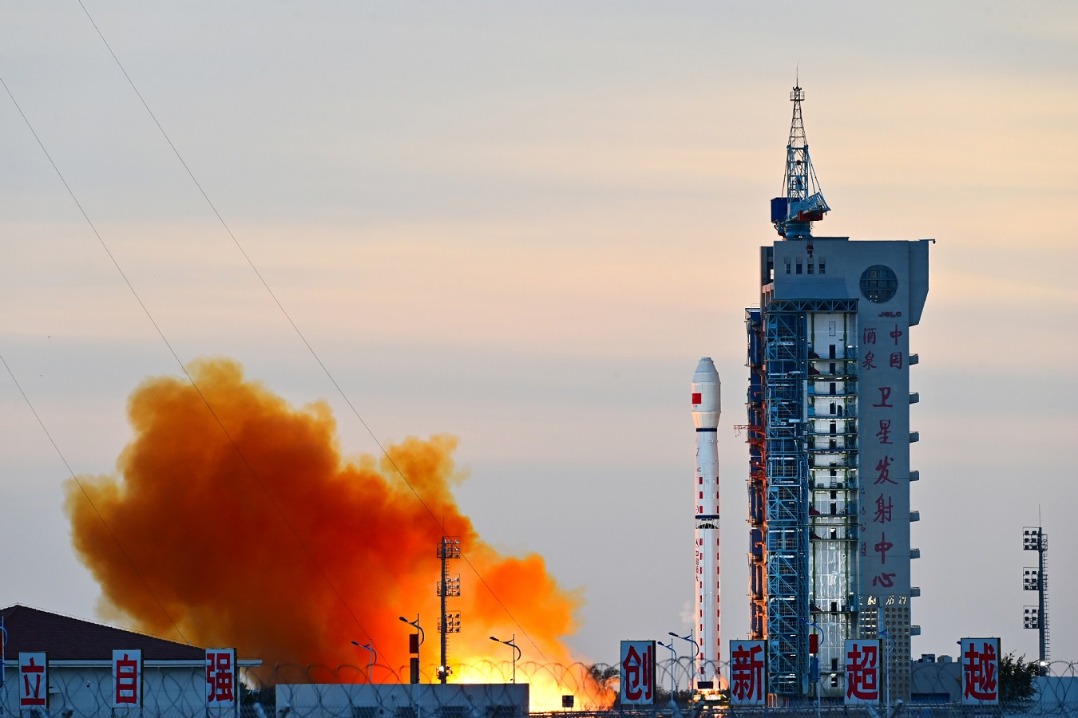Green transition key for agri-food sector

Ismahane Elouafi, executive managing director of the Consultative Group on International Agricultural Research, or CGIAR, a global partnership that unites research groups for a food-secure future, said that green transition could only be achieved through innovations that span technological, policy and institutional levels and include models for countries to work together.
"The impact of climate change is multiplying every day, and the only way forward for us is to adopt innovation in its broad sense to really transform the agriculture system," she said.
The experts also called for greater awareness for increasing food production with reduced carbon footprint and more care for the environment.
Patrick Caron, vice-chair of the CGIAR system board, said that humans have managed to increase food production throughout history, as living conditions improved and consumption patterns changed.
"However, at the moment, we are looking at the increase of production with a different angle," he said, referring to greater care to avoid climate change and degradations of land, water and biodiversity.
Wednesday marked the World Food Day, which has been celebrated annually on Oct 16 since 1981 to raise awareness and promote action for fighting hunger and ensuring food security for all.
Makers of food policy point to China as a source of hope amid the gloomy outlook of increasing food insecurity worldwide, citing the country’s ambitious goal to boost its annual food production capacity to approximately 700 million metric tons by 2030, up from the 695 million tons in 2023.
Elouafi, the CGIAR executive managing director, said, "I think China really is a bright spot in the global picture, and not only in increasing productivity in a very smart way, but also in reducing poverty and hunger."
Despite a recent reversal in global progress, the world made significant strides in alleviating hunger and poverty between 2000 and 2017, largely because of China's efforts, she said.
Elouafi noted that China's adoption of technologies and innovations in the agri-food sector, along with its initiatives to enhance rural incomes, played a pivotal role in the success. "What we need is the same plan for the rest of the world, particularly in developing countries," she said.
At a news conference on Wednesday, Foreign Ministry spokeswoman Mao Ning said that as the world's largest food producer, China grows a quarter of the world's food on less than 9 percent of the world's arable land and feeds 1.4 billion people.
China attaches great importance to global food security. In recent years, it has provided emergency food assistance to countries facing natural disasters and humanitarian crises, and has actively shared agricultural know-how and technologies to help developing countries enhance their food production capabilities, Mao said.
"China has provided more funding and experts and undertaken more projects than any other developing country under the framework of the Food and Agriculture Organization's South-South Cooperation Programme," she said.
Mao added that China is willing to continue strengthening cooperation on food security with all parties to strive for a world free of hunger.
- Green transition key for agri-food sector
- Qingdao West Coast New Area launches major investment drive in Beijing
- 4.9-magnitude quake hits China's Xinjiang: CENC
- Ex-Hebei official sentenced to 18 years for bribery
- China intensifies emergency food supply amid increasing extreme weather events
- Young artist transforms Tibetan village with 3D murals





































